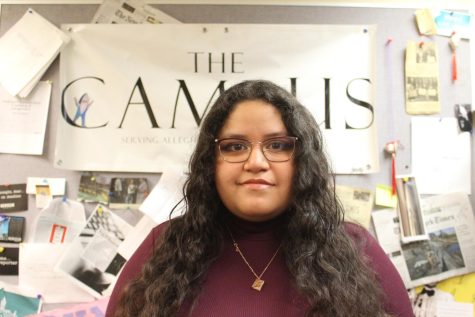ASG holds emergency budget hearings
In response to the number of organizations on campus operating without budgets, the Allegheny Student Government opened a form to request an emergency budget hearing.
On Sunday Oct. 24 from 12 to 4 p.m. in room 206 of the Henderson Campus Center, the ASG finance committee held these hearings.
Director of Finance Lucas Biniewski, ’23, explained the potential issues that may have arisen last year when the budget requests were first opened.
“People just didn’t submit budgets,” Biniewski said. “I don’t know if it was because of COVID or at the end of the semester everything got busy or people didn’t know how. We did a mass advertising campaign on it and it was advertised for at least two weeks prior.”
Biniewski reported that 11 clubs signed up for a time slot for the emergency hearings, though 16 submitted a budget application which means the remaining five clubs will not get a budget. Because many clubs do not have budgets, they need to submit finance requests to ASG every time they need to fund an activity. The process includes meeting with ASG, which then votes to decide whether or not the request is approved.
Vice President Sophie Adams, ’22, clarified that as long as the club is recognized by ASG and has an approved constitution, they are allowed to submit a finance request.
Class President Olivia Brophy, ’23, recognized the possibility that many clubs are getting a new influx of members who do not understand the financial process because of lack of experience.
“We are looking to increase awareness and make it easier for people to understand the process,” Brophy said. “I think whenever you are first getting to know the process it’s challenging but it becomes routine after a few times.”
Clubs had slots of approximately 15 minutes to list out their budget and hear what parts of their budget ASG is allowed to pay for. ASG has financial guidelines that dictate what they are allowed to pay for.
Crystal Hernandez, ’23, president of Latinas on the Rise, said complications arose with communication which resulted in many clubs not having budgets.
“Last semester it was advertised but the only reason I knew it was advertised was because I was already a part of the cabinet,” Hernandez said. “I told every organization that I was a part of that the application was open, but we never heard of budget hearings.”
Hernandez suggested having a link to the budget hearing sign up along with the budget application so that clubs do not have to worry about having to wait to hear when their budget hearing is. She shared her thoughts about why complications with budgets arose in the first place.
“It could have been that all the people who knew how to handle financial stuff graduated and when COVID hit we weren’t doing a lot with money,” Hernandez said. “It could have been the lack of help with transitioning into that.”
President of Chinese-American Friendship Society Megan Dennis, ’23, shared that her experience during the budget hearing was positive.
“They were all very straightforward and polite with asking questions,” Dennis said. “I think it would be nice to have at least one other time for budget hearings other than one in the beginning because there could be changes in who is in charge in clubs and they might miss an email.”
Biniewski encourages people to reach out when budget issues come up in order to avoid problems in the future.
“My job is to educate you, so if you really need help please come talk to me,” Biniewski said. “The problem is that no one ever reaches out and we have all this money that clubs are supposed to be spending. So far I think we have only spent $51,000.”
In order to educate club treasurers and presidents, Biniewski is planning to host a financial education session around the second week of November. The date has not been decided yet but is tentatively on Nov. 10.
Danielle Studer, ’22, president of Alpha Phi Omega shared her experience with the hearing as a larger organization. Some of the budget payments could not be paid for by ASG.
“It was really nice that they gave us a second chance to have a hearing and it was really easy,” Studer said. “They took some things off that they weren’t allowed to pay for but it was nice that they could explain why.”

Evelyn Zavala is a senior from San Francisco. She is majoring in Business and minoring in Journalism in the Public Interest. This is her fourth year on...








